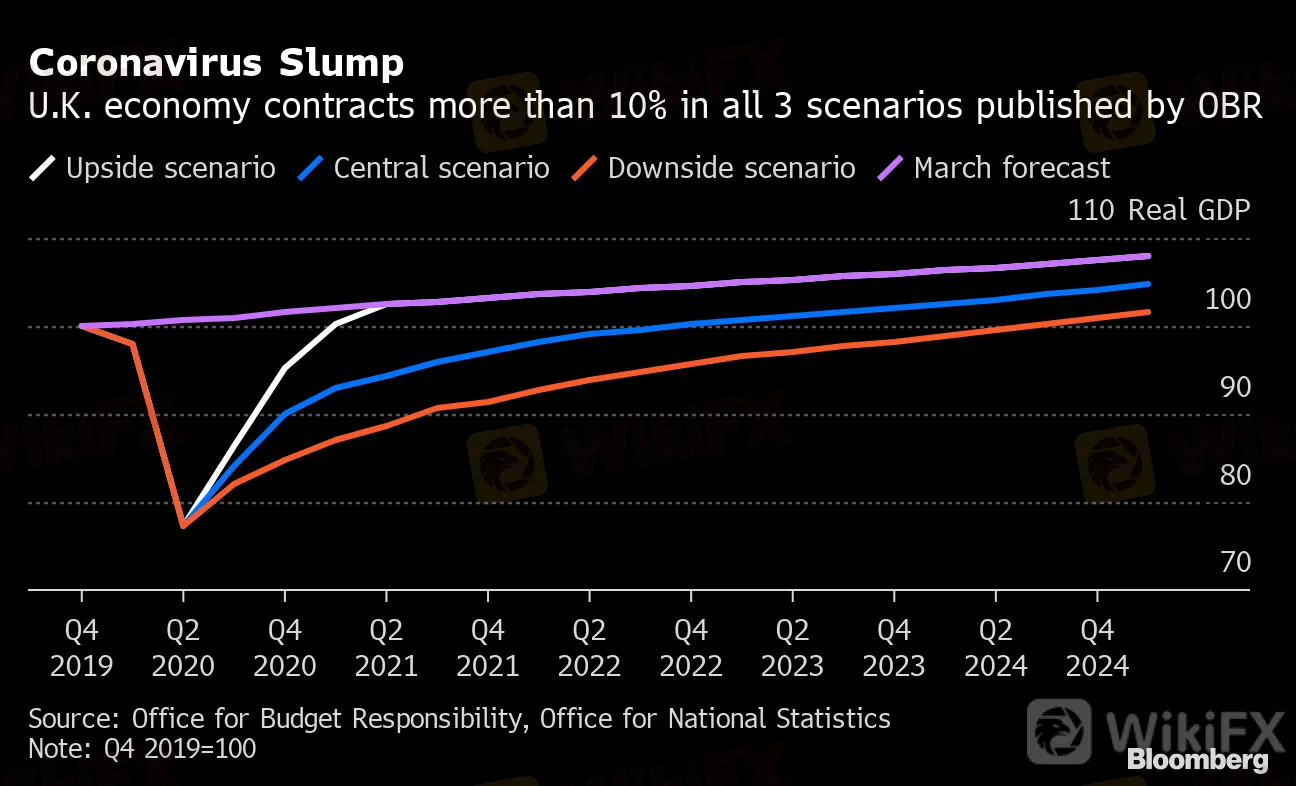简体中文
繁體中文
English
Pусский
日本語
ภาษาไทย
Tiếng Việt
Bahasa Indonesia
Español
हिन्दी
Filippiiniläinen
Français
Deutsch
Português
Türkçe
한국어
العربية
BOE‘s Haskel Warns Reopening Too Early Won’t Help the Economy
Abstract:Reopening the U.K. economy too early would worsen the damage from Covid-19, according to Bank of England policy maker Jonathan Haskel, citing the U.S. experience as an example.
Reopening the U.K. economy too early would worsen the damage from Covid-19, according to Bank of England policy maker Jonathan Haskel, citing the U.S. experience as an example.
The economy risks “getting stuck” as the fear of infection lingers after the lockdown lifts, with demand likely to remain weak due to the combined concerns about health and unemployment, he said on a webinar Thursday. The outlook will crucially depend on high-quality data and the development of effective testing.
“If we release the lockdown somewhat prematurely, as well looks like may well have been the case in Texas, we have this very difficult self-defeating cycle,” Haskel said in response to questions. If “more people get infected, then people hold themselves back.”
Coronavirus Slump
U.K. economy contracts more than 10% in all 3 scenarios published by OBR
Source: Office for Budget Responsibility, Office for National Statistics
Note: Q4 2019=100

The comments strike a more pessimistic tone from Haskel. At an event earlier this month, he said the U.K. economy is seeing a “glimmer of hope” with activity returning faster than anticipated, although he identified employment as a key risk.
The remarks also add to debate about how quickly the economy should reopen, given the costs of staying closed. In the U.S., a push by President Donald Trump and his allies to end lockdowns is blamed by some for a surge in infections without reaping economic benefits.
Britain, meanwhile, is pressing ahead with plans to reopen businesses and encouraging more people to work from home to accelerate the rebound from the virus-induced recession. The government, however, is retaining social distancing measures and has rules for tracking those who might have been exposed.
Read more: What Sweden shows Trump on lockdowns
A report for the National Institute of Economic and Social Research by authors including former BOE official David Miles estimated the “lowest plausible estimate of the cost of the lockdown” was around 200 billion pounds ($250 billion), while their attempt to place a value of its benefits estimated at 132 billion pounds.
“Blanket restrictions on economic activity should be lifted and replaced with measures targeted specifically at groups most at risk,” the report, due to be published next week in full, found. “The costs of the three-month lockdown in the U.K. are likely to have been high relative to benefits, so that a continuation of severe restrictions is unlikely to be warranted.”
Official data has since showed the U.K.s expansion was much weaker than expected in May and the Office for Budget Responsibility has said the economy could shrink as much as 14.3% this year, based on its pessimistic scenario. Even its upside projection sees a slump of more than 10%, which would be the worst in three centuries.
“I am concerned about the economy getting stuck and recovering only slowly and undershooting the inflation target,” Haskel said. “When the economy reopens, customers might still fear infection and therefore stay away from consumption that has a social element to it. It seems likely that such demand weakness will therefore drag on the economy and hold back the recovery.”
BOE Governor Andrew Bailey last week played down suggestions of a robust rebound, saying it ultimately depends on factors that are difficult to foresee, while policy maker Silvana Tenreyro has said that the recovery will hit a ceiling later this year.
Haskel voted with the majority of the nine-member Monetary Policy Committee to expand asset purchases at their June meeting. He also voted for an increase in May. The Monetary Policy Committee has already slashed to a record low 0.1%, rebooted quantitative easing and introduced new lending and liquidity measures since the crisis began.
When asked about whether the BOE might cut interest rates even further, he said that the experience of the crisis has shown that the central bank has the tools needed to calm financial markets.
Disclaimer:
The views in this article only represent the author's personal views, and do not constitute investment advice on this platform. This platform does not guarantee the accuracy, completeness and timeliness of the information in the article, and will not be liable for any loss caused by the use of or reliance on the information in the article.
WikiFX Broker
Latest News
CFI Partners with MI Cape Town, Cricket Team
Doo Financial Expands Reach with Indonesian Regulatory Licenses
Volkswagen agrees deal to avoid Germany plant closures
Geopolitical Events: What They Are & Their Impact?
Webull Canada Expands Options Trading to TFSAs and RRSPs
CySEC Launches Redesigned Website Packed with New Features
WikiFX Review: Is PU Prime a decent broker?
TradingView Launches Liquidity Analysis Tool DEX Screener
MultiBank Group Wins Big at Traders Fair Hong Kong 2024
WikiEXPO Global Expert Interview: Simone Martin—— Exploring Financial Regulation Change
Currency Calculator


